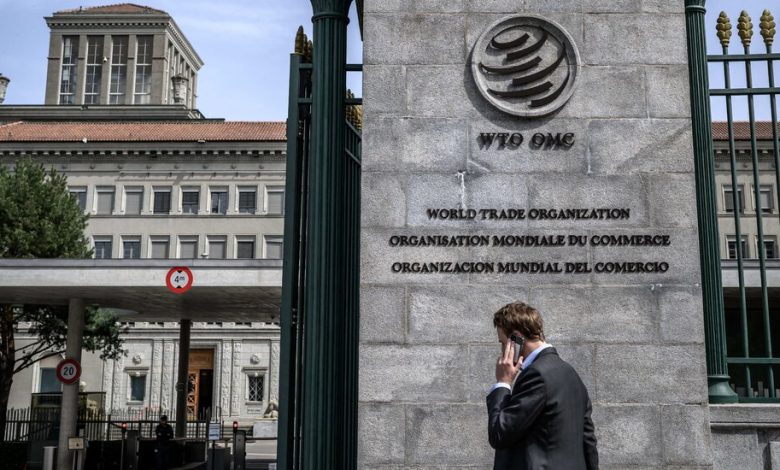A Better Way to Negotiate at the W.T.O.

Getting 160-plus countries on the same page about anything is next to impossible. That’s why so many of the headlines out of the big World Trade Organization conference this week in the United Arab Emirates — “Meeting Seeks Modest Outcomes”; “Slim Hopes for Breakthrough” — convey low expectations.
Nevertheless, there is something important to celebrate: For over a year now, the diplomats responsible for reforming the W.T.O. have been trying out a new way of doing business, with remarkable results.
Instead of showing up to meetings with their own written proposals — and haggling over whose will get adopted — they started by listening to one another’s interests and goals. Then they came up with creative ways to achieve those goals and wrote a new set of proposed rules together. It may sound a lot like common sense, but in the rigid world of international trade, it amounted to a radical change. The result? They made more progress in one year than previous reform efforts had achieved in decades.
“I was really surprised at the extent of the progress,” Bruce Hirsh, a former legal adviser to the U.S. Mission to the W.T.O., told me after reading a draft of the reform proposal that was recently made public.
This new method, called “interest-based negotiation,” isn’t actually new. Marco Molina, the Guatemalan diplomat who facilitated these talks at the W.T.O. headquarters in Geneva, learned it in the 1990s, when he first joined his country’s Economic Ministry.
But the technique was novel for the W.T.O. Many diplomats there had never been involved in a process like that before. Still, last year, when members of the W.T.O. were scrambling to come up with a reform plan by an ambitious deadline, Mr. Molina’s name came up repeatedly as a possible facilitator. He agreed to lead informal talks, and set out “to demonstrate that this methodology actually works,” he told me.




